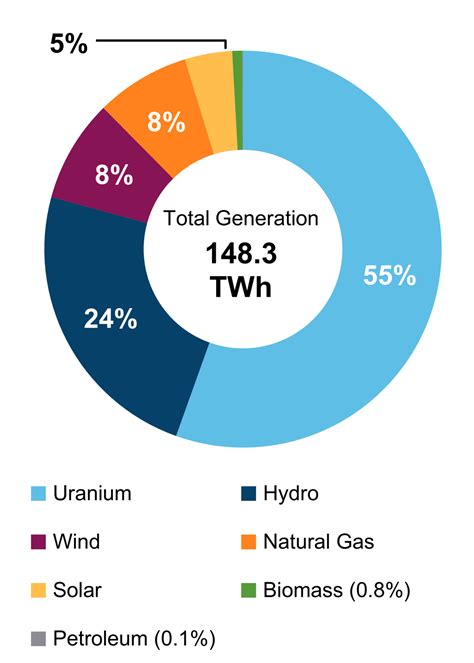As the largest province in Canada, Ontario is home to a diverse range of landscapes, climates, and energy needs. From the bustling streets of Toronto to the scenic countryside, Ontarians are constantly seeking ways to manage their energy consumption and reduce their environmental footprint. In this article, we will explore five expert-level Ontario energy tips, providing a comprehensive guide for individuals and businesses seeking to optimize their energy usage and contribute to a sustainable future.
Understanding Ontario’s Energy Landscape

Before diving into our top energy tips, it’s essential to understand the current state of Ontario’s energy landscape. The province is committed to reducing greenhouse gas emissions and promoting renewable energy sources. In fact, according to the Ontario Energy Board, renewable energy sources accounted for 34.6% of the province’s electricity generation in 2020. This shift towards cleaner energy is driven by initiatives such as the Green Energy Act and the Climate Change Action Plan. By understanding these policies and programs, Ontarians can make informed decisions about their energy usage and contribute to the province’s sustainability goals.
Key Points
- Conduct an energy audit to identify areas of inefficiency in your home or business
- Invest in energy-efficient appliances and lighting to reduce energy consumption
- Take advantage of Ontario's renewable energy incentives and programs
- Optimize your energy usage with smart home devices and automation
- Support community-based energy initiatives and cooperative models
Tip 1: Conduct an Energy Audit
An energy audit is a comprehensive assessment of your home or business’s energy usage, identifying areas of inefficiency and providing recommendations for improvement. By conducting an energy audit, you can pinpoint areas where energy is being wasted and develop a plan to optimize your energy consumption. In Ontario, energy audits can be conducted by certified professionals, such as those certified by the Canadian Association of Energy Auditors. These audits typically involve a thorough examination of your building’s envelope, insulation, windows, and mechanical systems, as well as an analysis of your energy bills and usage patterns.
| Energy Audit Category | Typical Energy Savings |
|---|---|
| Building Envelope | 10-20% |
| Insulation and Windows | 15-30% |
| Mechanical Systems | 20-40% |

Tip 2: Invest in Energy-Efficient Appliances and Lighting
Energy-efficient appliances and lighting can significantly reduce your energy consumption and lower your energy bills. In Ontario, the Energy Star program provides a rating system for energy-efficient products, making it easier for consumers to make informed purchasing decisions. By investing in energy-efficient appliances and lighting, such as LED bulbs and Energy Star-certified refrigerators, you can reduce your energy consumption and contribute to a more sustainable future.
Tip 3: Take Advantage of Ontario’s Renewable Energy Incentives
Ontario offers a range of incentives and programs to encourage the adoption of renewable energy sources, such as solar and wind power. The Feed-in Tariff program, for example, provides a guaranteed price for renewable energy generated by individuals and businesses. By taking advantage of these incentives, you can reduce your reliance on non-renewable energy sources and contribute to a cleaner, more sustainable energy future.
Tip 4: Optimize Your Energy Usage with Smart Home Devices
Smart home devices, such as smart thermostats and energy monitors, can help you optimize your energy usage and reduce waste. These devices provide real-time energy usage data, allowing you to identify areas of inefficiency and make informed decisions about your energy consumption. In Ontario, many utility companies offer smart home devices and energy monitoring programs, making it easier for individuals and businesses to take control of their energy usage.
Tip 5: Support Community-Based Energy Initiatives
Community-based energy initiatives, such as cooperative models and community solar programs, provide a unique opportunity for individuals and businesses to come together and promote sustainable energy practices. By supporting these initiatives, you can contribute to a more localized and resilient energy system, while also promoting economic development and community engagement.
What are the benefits of conducting an energy audit?
+Conducting an energy audit can help you identify areas of energy inefficiency, reduce your energy consumption, and lower your energy bills. It can also provide a comprehensive understanding of your energy usage and help you develop a plan to optimize your energy consumption.
How can I take advantage of Ontario's renewable energy incentives?
+To take advantage of Ontario's renewable energy incentives, you can visit the Ontario Energy Board website or contact a certified renewable energy professional. They can provide you with information on available programs and help you navigate the application process.
In conclusion, by following these five expert-level Ontario energy tips, individuals and businesses can optimize their energy usage, reduce their environmental footprint, and contribute to a more sustainable future. Whether you’re a homeowner, business owner, or community leader, there are many ways to make a positive impact on Ontario’s energy landscape. By working together and promoting sustainable energy practices, we can create a cleaner, more resilient energy system for generations to come.


